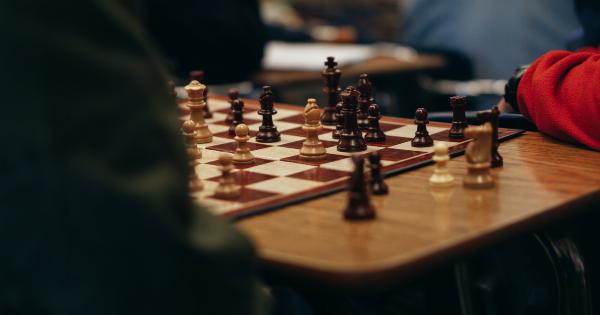Cognitive activity encompasses various mental processes such as perception, attention, learning, memory, language, problem-solving, and decision making.
These cognitive processes are fundamental to human intelligence and play a crucial role in shaping our thoughts, actions, and overall behavior. This article explores the different manifestations of cognitive activity and their significance in understanding the complexities of human cognition.
1. Perception
Perception is the process through which we interpret and make sense of sensory information received from our environment.
It involves the brain’s ability to organize and interpret raw sensory data, such as visual or auditory cues, and form coherent mental representations. Perception allows us to recognize objects, people, and events, enabling us to navigate and interact with our surroundings effectively.
2. Attention
Attention refers to the ability to selectively focus on specific aspects of our environment or internal thoughts. It plays a crucial role in filtering out irrelevant information and allowing us to concentrate on relevant stimuli.
Attention is essential for tasks such as reading, listening, problem-solving, and decision-making, as it determines what information gets processed and encoded in our memory.
3. Learning
Learning involves the acquisition and organization of knowledge through experience, study, or teaching.
Cognitive activity plays a vital role in various forms of learning, including declarative learning (acquiring facts and information), procedural learning (acquiring skills and habits), and social learning (acquiring behaviors through observation and imitation). Learning expands our cognitive abilities and shapes our understanding of the world.
4. Memory
Memory refers to the process by which information is encoded, stored, and retrieved in the brain. It is a fundamental aspect of cognitive activity and is involved in various cognitive processes, including learning, understanding, and decision-making.
Memory can be classified into different types, such as sensory memory, short-term memory, and long-term memory, each with its own unique characteristics and functions.
5. Language
Language is a complex cognitive activity that involves the use of symbols, sounds, and gestures to communicate meaning. It encompasses various processes, including comprehension, production, and interpretation of spoken or written words.
Language is a fundamental tool for human communication, allowing us to express our thoughts, convey information, and engage in social interactions.
6. Problem-Solving
Problem-solving refers to the cognitive processes involved in finding solutions to complex or novel situations. It requires the application of logical reasoning, critical thinking, and creative strategies to overcome obstacles and reach goals.
Problem-solving skills are essential for everyday tasks, such as planning, decision-making, and troubleshooting.
7. Decision Making
Decision-making involves the process of selecting the best course of action from available alternatives. It requires cognitive abilities, such as evaluating options, weighing pros and cons, and considering potential outcomes.
Decision-making is influenced by cognitive factors, such as biases, emotions, and past experiences, and plays a crucial role in personal and professional life.
8. Attention Deficit Disorders
Attention Deficit Disorder (ADD) and Attention Deficit Hyperactivity Disorder (ADHD) are neurodevelopmental disorders characterized by difficulties in sustaining attention, controlling impulses, and regulating hyperactivity.
These disorders arise from impairments in cognitive processes related to attention, inhibitory control, and executive functions. Understanding the manifestations and underlying cognitive mechanisms of ADD and ADHD is crucial for diagnosis and effective management.
9. Cognitive Aging
Cognitive aging refers to the gradual changes in cognitive abilities that occur with advancing age. As individuals grow older, certain cognitive processes, such as memory, processing speed, and attention, may decline.
However, cognitive aging is a complex and heterogeneous process that varies across individuals. Exploring the manifestations of cognitive aging can help identify strategies to promote healthy aging and prevent age-related cognitive decline.
10. Cognitive Rehabilitation
Cognitive rehabilitation aims to improve or restore cognitive functioning in individuals with cognitive impairments due to various neurological conditions, such as traumatic brain injury, stroke, or neurodegenerative diseases.
It involves tailored interventions targeting specific cognitive domains, such as attention, memory, and executive functions. Cognitive rehabilitation approaches are based on principles of neuroplasticity and aim to enhance cognitive skills and promote functional independence.






























